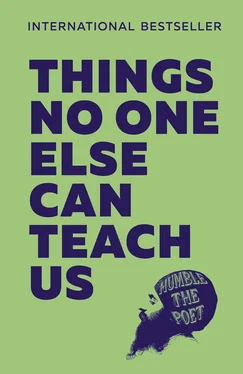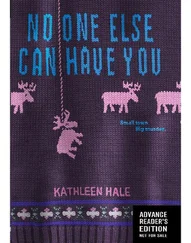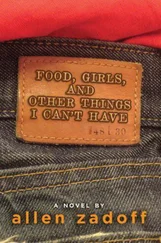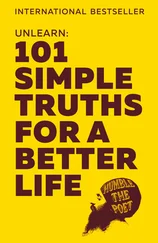No friend’s feelings were harmed in the making of Humble the Poet, at least not in my self-indulgent, apathetic eyes. Because of my financial strain and the slowdown in my inspiration, I felt like I was in “sink-or-swim” mode, and even the good people in my life were slowing me down.
If you want to go fast, go alone …
—African proverb
I wanted to go fast. I wanted out of the hole I was in. I wanted fresh air. I was sick of being broke, sick of losing, sick of being betrayed by people after believing their empty promises. I needed to figure things out by myself.
Fuck everybody else.
Everybody else, unfortunately, included Boomerang.
Boomerang was a friend of a friend. Though that friend disappeared abruptly after being caught making uninspiring decisions, Boomerang remained.
Boomerang and I soon got to know each other on a deeper level. He was a sweet guy, and we had a lot in common. He was making beats as a side hustle and loved a lot of the same music I did, and in the later stages of our friendship, we bonded over the betrayal we both felt from our former friend.
But Boomerang worked in insurance, or finance—something to do with money and sales. I didn’t take the time to understand because none of it sounded like it was beneficial to me, the aspiring rapper and artist.
We wouldn’t hang out one-on-one often, yet Boomerang came to every event I threw, alongside our ragtag band of creatives. He was always there, front and center, alongside other artists who were integral to the creative moment we were all a part of. He put in the time and the effort.
Every so often he would send me a message asking me to hang out with him, and I would be either out of town or too busy working on something to be social. I always told him I would get back to him soon, but never did.
Boomerang never took it personally. He still showed up at the events, still showed love, and still regularly reached out to check in.
One cold January night, right before I was headed to LA for a few weeks for work, I contacted him at the last minute to hang out. I was in his neighborhood and figured it was convenient to stop by. We spent less than an hour shooting the shit and catching up. I didn’t stay long because I had to prepare for my trip, and I was basically squeezing him in before heading to the next thing. But we had a good time: he loved hearing stories and always asked the kinds of questions that made me know he was genuinely interested. I realized that Boomerang’s only intention was to hang out with good people. Just as he reached out to me regularly to catch up, he made efforts to stay in contact with all his friends. He, like everybody else, just wanted to be around great energy.
Even though I enjoyed the short time I spent with him that January night, at that point in my life I felt I couldn’t afford to be around people who weren’t directly serving my ambitions.
I would get daily requests from people to sit down for a coffee to discuss a new project or idea or to pitch me a business venture. Some people just wanted to show their social media followers that they knew me. I viewed these requests in one of two ways: either I didn’t feel those people were helping me to get where I wanted to go, or I worried they were trying to use me. I got bit in the ass a few too many times, so I developed a generous layer of paranoia when trying to figure out people’s intentions. These two reactions to people approaching me—for business and for friendship—led me to avoid most people, and I focused my energy on spending time with creatives and people in my industry, who I felt were going to help me get my own stuff off the ground. Boomerang had some creative ideas, but he never pursued them on a serious level. So even though the time I spent with him made me happy, I didn’t prioritize him. I didn’t see the point.
The irony was, in my relentless pursuit of the right kind of people to surround myself with, I ended up becoming the kind of person I was trying to avoid.
In July of that year, I put out the music video for my song “H.A.I.R,” and Boomerang was one of the first to message and congratulate me on the release. He sent nothing but love and asked whether we could link up soon. I told him I was out of town until late August. I never followed up with him when I returned.
“Congrats on the new Video man, it’s Fire!”
“Thank You man”
“Are you back in the city? we need to hang out and catch up”
“I’ll be back in a few weeks, near the end of August, I’ll hit you up when I am”
“Okay cool, we’ll do the weekend, weekdays are busy for me”
“Awesome”
Those few texts would be the last time we connected.
In September, Boomerang suddenly collapsed at home and was admitted to the ICU. After a short stint in a coma, he passed away.
He was gone.
There was no second chance. Boomerang always got the short end of the stick from me. I couldn’t appreciate that somebody might be thinking about me and might actually want to spend time with me, regardless of any networking or professional currency I had. I could make a list of all the famous people I went out of my way to be around, hoping to extract some wisdom, opportunity, or introduction to something or someone that would further me on my journey, but very few of them felt awesome to be around. Boomerang felt awesome to be around, but for some reason that wasn’t enough for me.
I was a terrible friend to someone who was nothing but wonderful to me, and I don’t want that to happen again, not to me, or to anyone reading this book. I still have those last texts from my phone, and when I look at them, I know I could have contacted him when I got back at the end of August, but I didn’t, and now he’s not here anymore.
We forget/ignore/avoid mortality for so many reasons, and when those close to us pass away, we wake up, but only temporarily, before we reset to our unappreciative defaults.
I don’t want to blame Los Angeles for all of this since I’m the one who didn’t make my friend a priority, but I do know that the LA environment contributed to my decisions at that time. The “what can you do for me” mindset is dripping out of the palm trees. In Hollywood, I saw the rewards of success, and like everyone else, I wanted a piece of it. I smothered this greed in good intentions and elaborate justifications, but the truth is, I really just hoped achieving success would make me feel better about myself.
It didn’t. It wouldn’t. How could it?
I didn’t realize how much being in Los Angeles affected my priorities until I left and took an active break from that environment.
The uncomfortable reality is that any connection with a friend could possibly be the last. But that uncomfortable reality is also a good lens for viewing the world: if we kept this in mind, we would treat the people in our lives with more care. Remembering that the people in our lives won’t be here forever is the best way to motivate us to be as wonderful to them as possible, while they’re still here. It’s tricky, since we’re not really wired to remember this fact, but when we make the active effort to keep it in mind, beautiful choices come from that effort.
But we don’t.
When we chase ambition, we focus on what we don’t have and spend less time appreciating the things and people we do have. As a result, we further isolate ourselves from each other, assuming that everything we experience and everyone we know will always be here. The people we have won’t always be here, so let’s not deprive ourselves of their presence simply because we’re too caught up in wanting more of some other stuff.That other stuff won’t last either—nothing does. So let’s appreciate who and what we have while we still have it. If we’re not happy with what we have, we won’t be very happy with all that we get.
Читать дальше












